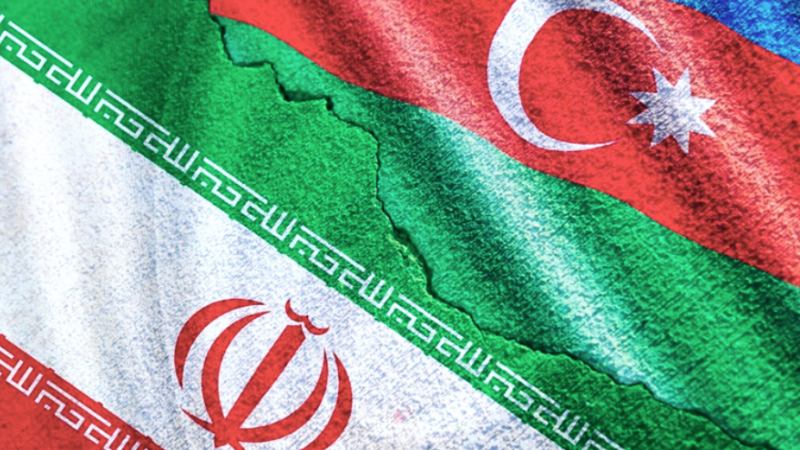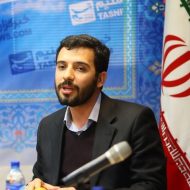While last year, some analysts were striving to portray Iran and the Republic of Azerbaijan on the brink of a full-scale political standoff that could potentially escalate to a military tension, the two countries embarked on constructing a new communication bridge this year, with the visit of Iran’s Minister of Roads and Urban Development to the northwestern neighbor. On the other hand, an agreement was reached to expedite the revitalization and development of the communication route that runs through Iran between the Republic of Azerbaijan’s mainland and the autonomous Republic of Nakhchivan.
The current scenario signifies a significant political shift in both countries’ approaches to bilateral issues, as well as the emergence of a new regional order. This matter, which had been largely ignored until a few months ago, particularly in the media, was being pushed toward increased political tension.
Informational-analytical contamination and breakdown of Iran-Azerbaijan Relations
Following Azerbaijan’s victory in reclaiming its occupied territories from Armenia, certain political and media groups in Tehran attempted, in coordination with some political players in Yerevan, to label this significant move, originally intended to establish regional security and reduce tensions while extricating the region from a deadlock, as the starting point for political conflicts between Iran and Azerbaijan. The reopening of all communication routes, as stipulated in the trilateral peace treaty signed by Azerbaijan, Russia, and Armenia on November 9, 2020, was presented by these political groups as the main pretext, and the issue of the Zangezur Corridor was exaggerated to portray it as a NATO-like corridor against Iran’s strategic interests.
Furthermore, these groups alleged that Türkiye and Azerbaijan were attempting to invade Armenia’s Syunik province by saturating the Iranian media with false material. This was happening at a time when Armenia was amid peace negotiations with Azerbaijan and Türkiye, and if there had been a real threat to its territorial integrity, it should not have entered such a political process.
This negative analytical situation in Iran against the Republic of Azerbaijan and Türkiye, which also escalated media rhetoric against Azerbaijan and Türkiye, culminated in an unexpected incident, such as the attack on the Azerbaijani embassy by an individual with psychological and domestic problems. Eventually, with the closure of the Azerbaijani embassy in Tehran, political relations between the two countries deteriorated to their lowest point in thirty years.
Media manipulation and mutual provocation
While the infusion of misleading information and flawed analysis complicated the situation in Iran, certain media outlets in Azerbaijan adopted non-constructive, irresponsible, and provocative rhetoric against Iran. These media organizations, with their divisive language against Iran’s territorial integrity, sought to incite Iranian Azerbaijani citizens. Another topic exploited by this media environment to disrupt relations between Tehran and Baku was an overemphasis on Israel’s influence and activities in the Republic of Azerbaijan, which is considered a sensitive issue for Iran and a red line for its interests.
In fact, while some Yerevan-affiliated groups in Tehran sought to sour relations with Azerbaijan, some media with ties to Israel sought to spoil ties with Iran in Azerbaijan. Iran was portrayed as a more dangerous foe of Republic of Azerbaijan than Armenia in some Azerbaijani media rhetoric. It was an issue without any basis in history and an expression of ingratitude for all the Iranian assistance provided to Azerbaijan during its period of independence.
Success of strategic pragmatism
Despite the media turmoil, the leadership in both governments have maintained their primary strategy of maintaining communication bridges, addressing mutual concerns, prioritizing regional peace and stability, and paying attention to their longstanding historical connections.
As a result, bilateral relations have improved in recent months, particularly since the liberation of all areas of Nagorno-Karabakh from Armenian separatists and the Azerbaijani government’s anti-terror operations in those areas, heralding the potential for a new regional order in the post-war era.”
Iran made a significant step in this direction with the visit of Mehrdad Bazarpash, Minister of Roads and Urban Development and the Chairman of the Joint Commission for Economic, Commercial, and Cultural Cooperation between Iran and Azerbaijan. Bazarpash met Ilham Aliyev, the President of Azerbaijan, during his trip and sent him greetings from Ebrahim Raisi, the President of Iran. The agreements made during his visit, which was made a few days after the visits to Tehran with Raisi by Khalaf Khalafov, the assistant to the president of the Republic of Azerbaijan for special affairs, demonstrated the strategic approach that the two sides have to their bilateral relations. Among the topics that were stressed during this trip were the North-South Corridor’s completion, Iran’s involvement in the 30-year communication route between Azerbaijan and Nakhchivan, and the reopening of the Azerbaijani embassy in Tehran.
In this positive environment, the announcement of a joint naval exercise between Iran and the Republic of Azerbaijan in the Caspian Sea soon, also demonstrates another level of cooperation and the leaders of both countries’ outlook on the future of their relations. Speaking in this regard, the spokesperson for Iran’s Ministry of Foreign Affairs Nasser Kanaani said that both countries had successful and fruitful discussions regarding military cooperation. The continuation of this path, as well as attention to the 3+3 format proposal raised by Azerbaijan and Türkiye, appear to be holding a promising future for regional cooperation and preventing non-regional forces, including NATO and Israel, from infiltrating the Caucasus and its surroundings. If the positive trend of improving relations continues its positive trajectory, particularly if Armenia and Georgia remain steadfast against Western pressures, we can expect the leaders of the six countries to meet in the 3+3 format, which would be a novel development in regional cooperation.









Leave a Reply